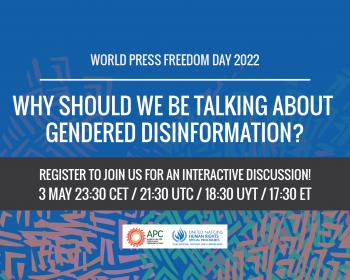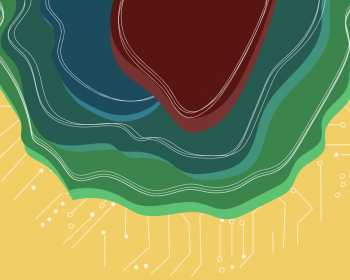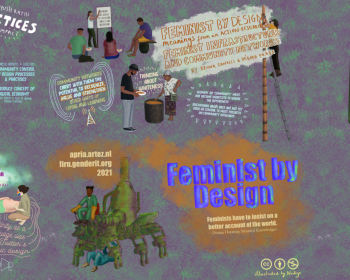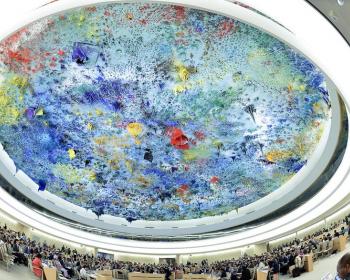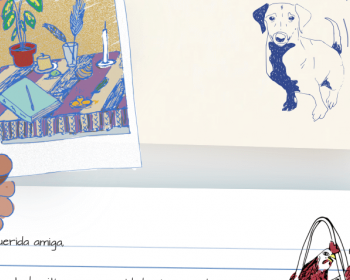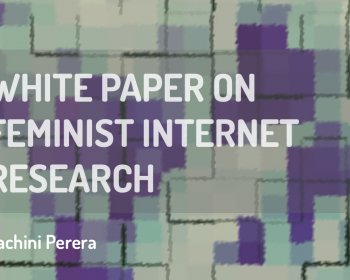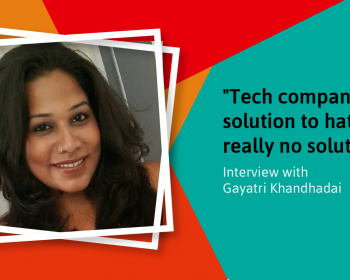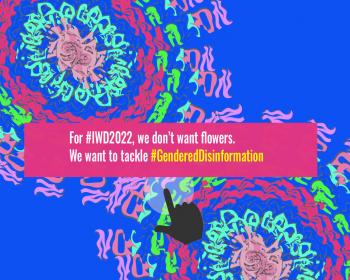Feminist internet
As part of World Press Freedom Day, APC will co-host a session on 3 May with the UN Special Rapporteur on Freedom of Expression focused on the key issue of gendered disinformation, as well as participate in a session on digital authoritarianism.
The meta-research project formed part of the broader Feminist Internet Research Network (FIRN) project led by APC and created a feminist space for dialogue to explore the complexities of doing internet research.
Feminist By Design is ambitious in its title and aims. The journal showcases research journeys, findings and feminist intentions, bringing together a diverse group of researchers from around the world who were part of the Feminist Internet Research Network (FIRN).
The Human Rights Council (HRC) held its 49th session in Geneva from 28 February to 1 April. During a long session that covered five weeks, the Council discussed important country situations and thematic issues on the intersections between human rights and technology.
Civil society organisations have an important role in making sure that cyber capacity building is informed by human rights, following one of the capacity-building guiding principles in the previous OEWG final report.
In these beautifully illustrated letters, we learn about the methodology of women circles, and women in community networks show us that crafting relationships is as vital as crafting technology.
Women and girls as well as people of diverse sexualities and gender expressions are more often the targets of online violence, and are increasingly targeted by disinformation campaigns, which can have a more severe impact on these groups because of historical and structural inequalities.
APC has been working towards imagining and making a feminist internet by building and strengthening networks of researchers, activists and others. This paper aims to assess feminist internet research on internet governance and policy, with a particular focus on scholarship in the global South.
After six years with APC, Asia policy coordinator Gayatri Khandhadai is closing a cycle. In this interview, she takes stock of the learnings gained while coordinating policy-related initiatives and analyses the evolution of critical digital rights issues and spaces in the region.
How can we address disinformation and its impact on women and gender-diverse people? This was the focus of APC's campaign for International Women's Day 2022.

Association for Progressive Communications (APC) 2022
Unless otherwise stated, content on the APC website is licensed under Creative Commons Attribution 4.0 International (CC BY 4.0)



